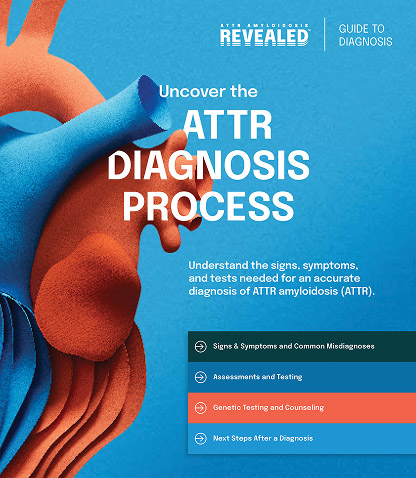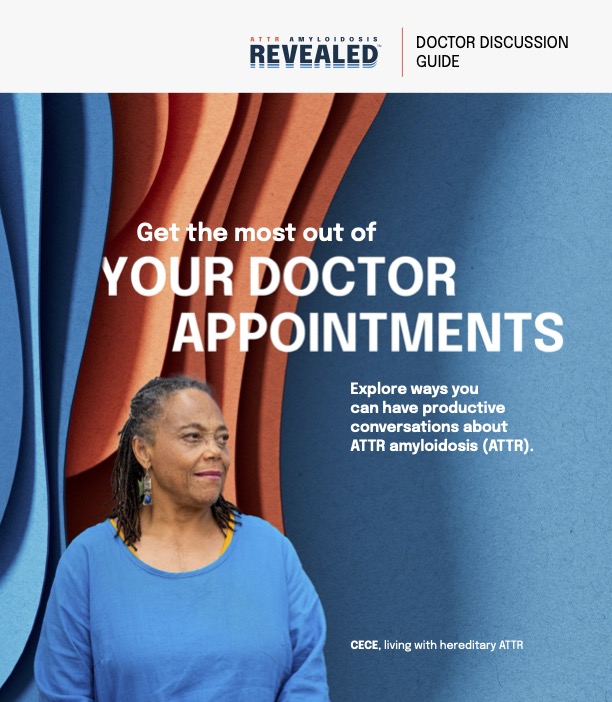Talk about ATTR amyloidosis (ATTR) with your doctor
TTR amyloid deposits continue to build up over time, which can cause symptoms to worsen, so it’s important to work with your healthcare team to get a diagnosis early and talk to your doctor regularly about your condition. Having a strong relationship with a doctor who knows how to manage ATTR can be key in determining a diagnosis.
Here are ways to get ready for the next conversation with your healthcare team.
Prepare a list of your symptoms
ATTR can affect many parts of your body and can be mistaken for other conditions, so it’s important to be aware of the signs and symptoms. Track your symptoms with the Symptoms Checklist & Tracker and discuss them with your doctor during your next visit.
Even if you’ve already received a diagnosis of ATTR, let your doctor know about any new or changing symptoms, even if they seem unrelated.
Gather your medical and health info
To help get closer to a diagnosis, additional medical and health information can help with your doctor’s assessments during your visits:
- Medical history and test results for you and your family. Gathering your family's health history can help your doctor determine if you have the hereditary form of the disease.
- A list of your current and past medicines, especially if you’ve taken medicines for heart failure that may not be improving your condition
- Data from any health‑tracking devices or apps, like an activity level tracker or heart rate monitor
Keep the ATTR conversation going
The Doctor Discussion Guide is a personalized tool that can help you have informative and open conversations about ATTR with your healthcare team.
Start by answering this short interactive questionnaire to help you or your loved one prepare for an upcoming discussion with your doctor and feel confident in your next steps on your ATTR journey.
Or, you can download a version to print and fill out.
By submitting this form, I agree to the Alnylam Privacy Policy. I am 18 years or older, a US resident, and consent to the processing of my personal data per the terms outlined in the Data Privacy Notification and Consent.
Ask key questions
Continuing in-depth conversations with your doctor will help you know what to expect and establish how you can best work with each other. It’s important to prepare a list of key questions that you would like to ask ahead of your appointment. For example:
-
What is the best way to track my symptoms? Which details are important to record and share?
-
How can ATTR worsen over time? What should I do to monitor my symptoms?
-
Can we talk about next steps if I am diagnosed with ATTR?
IN THIS SECTION

Guide to Diagnosis Brochure
Understand the process of getting diagnosed with ATTR and what you can do.

